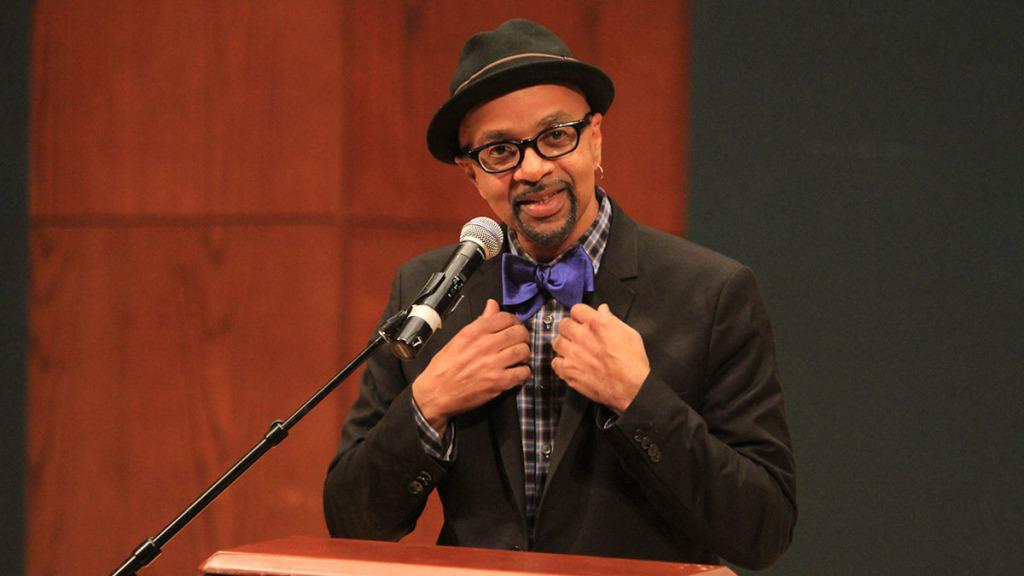James McBride is the author of the 1995 memoir, “The Color of Water.” The book spent over two years on The New York Times best-seller list and sold more than 2.5 million copies. He is also the author of Ithaca College’s First-Year Reading Initiative novel this year, “The Good Lord Bird.”
McBride spoke about his award-winning novel on Nov. 3 at the college and then conducted a short Q&A session with the audience.
McBride’s talk covered the main historical figure in his novel, abolitionist John Brown; his personal experiences with success and failure; and advice to students about how to better their educational experiences in college.
McBride discussed Brown’s significance in the novel and in history, saying he believes Brown was a revolutionary abolitionist, which at the time hurt his reputation.
“He was so far ahead of his time that people never really did understand what he was about until he was captured at Harper’s Ferry,” McBride said.
After he was captured in Harper’s Ferry, West Virginia, Brown — who was charged with the murder of five people in 1859 — spent six weeks writing a series of letters to major news outlets.
McBride said he reveres Brown for his immense religious faith, ability to cooperatively use his religious message and his continued actions even under scrutiny.
“He feared nobody, but he did fear God,” McBride said. “He wasn’t a psychopath, and he wasn’t someone who used religion as some sort of baseball bat.”
After speaking about Brown, McBride spoke on his personal experiences in a multitude of professions. McBride said he has failed more than he has succeeded during his time as a journalist, musician and writer. He said failure was an important aspect of his life.
McBride said he wrote failed short stories, and was fired from a play four days before the show’s opening night. He said he wanted students to realize that failure is a part of learning.
“You have already demonstrated that you know how to succeed,” he said. “Here at Ithaca, you need to learn to fail.”
Freshman Paul Regan, who attended the event, said he believes McBride’s talk helped students become less worried about succeeding in college.
“I think his talk helped students realize they’re not always going to succeed right away,” Regan said. “Sometimes you just have to cool it and accept your failures.”
Derek Adams, assistant professor of English, said he thinks McBride’s interpretation of failure varies from his because of how successful McBride is.
“I want to invite McBride to one of my English classes because it seems his definition of failure is radically different than our own,” Adams said.
McBride said students should not follow the actions of those around them, and should branch out. He said many people lack creativity because they are constantly partaking in the same activities as their peers. In a similar manner, he said novels today are not as noteworthy due to the majority of society receiving their knowledge from similar sources.
“Much of the failure in the art in writing that makes it today is because everyone reads the same books. We learn this artificial knowledge, from this little box,” McBride said while holding his iPhone.
McBride said he believes students should become more creative by traveling and leaving the traditional college setting. He also said he believes the world needs to see more American students positively affecting foreign countries.
“America needs you to leave here and fan out across the globe because the globe has seen enough of our young people staring down the barrel of an M-16 at them,” McBride said.
In August, the college announced that “The Good Lord Bird” is the last novel for the FYRI program, which will be replaced with a new program in the First-Year Residential Experience beginning next fall.








